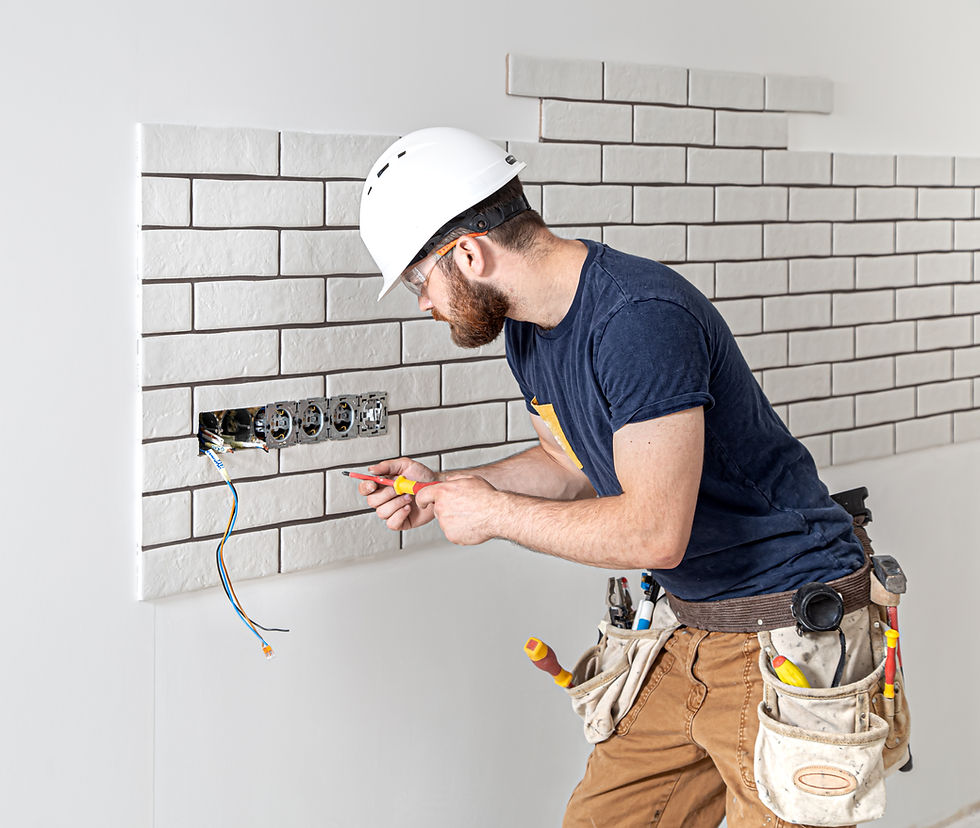What Are the Qualities of a Good Industrial or Commercial Electrician?
- John Shaw
- Mar 13, 2025
- 3 min read

Introduction
Industrial and commercial electricians play a crucial role in ensuring the smooth operation of electrical systems in large-scale settings. From troubleshooting faulty wiring to installing advanced electrical components, these professionals must possess a unique blend of technical expertise and practical skills. Whether working in factories, office buildings, or construction sites, an electrician must meet high industry standards.
1. Strong Technical Knowledge
A good industrial or commercial electrician must have an in-depth understanding of electrical systems, wiring, and components. They should be well-versed in reading blueprints, schematics, and technical diagrams to ensure precise installations. Moreover, staying updated with the latest advancements in electrical services helps them implement the most efficient and modern solutions.
2. Problem-Solving Skills
Electrical issues in industrial and commercial settings can be complex. A skilled electrician must quickly analyze problems and develop effective solutions. Whether diagnosing a power failure or repairing faulty machinery, problem-solving abilities help ensure minimal downtime and maximum safety. Quick thinking and logical reasoning are essential to prevent disruptions in daily operations.
3. Attention to Detail
Precision is critical when working with electrical systems. Even minor errors can lead to significant safety hazards or costly repairs. A professional electrical technician ensures that every wire, circuit, and connection is correctly installed and meets the required standards. Following strict guidelines and double-checking work are vital habits of a good electrician.
4. Physical Stamina and Dexterity
Industrial and commercial electricians often work in demanding environments, requiring excellent physical endurance. From lifting heavy equipment to working in tight spaces, they must have the strength and agility to handle various tasks. Additionally, working at heights or in extreme temperatures requires resilience and adaptability.
5. Excellent Communication Skills
Effective communication is essential in the electrical industry. Electricians must collaborate with project managers, engineers, and other team members to ensure smooth workflow. They also need to explain technical issues to clients in an easy-to-understand manner. Clear communication helps prevent misunderstandings and enhances overall efficiency.
6. Safety Awareness and Compliance
Electrical work comes with significant risks. A good electrician prioritizes safety by strictly adhering to industry regulations and best practices. Understanding and following the National Electrical Code (NEC) and Occupational Safety and Health Administration (OSHA) guidelines are fundamental. Proper use of protective gear and safe handling of electrical components help minimize hazards.
7. Time Management and Reliability
Meeting deadlines is essential in commercial and industrial projects. Electricians must efficiently manage their time to complete tasks within the given schedule. Being punctual and dependable ensures smooth project execution and builds trust with employers and clients. A reliable electrical technician understands the importance of balancing speed with accuracy.
8. Ability to Work Independently and in Teams
Industrial and commercial electricians must be comfortable working alone and as part of a team. Some tasks require independent problem-solving, while others involve collaboration with construction crews, engineers, or fellow technicians. Adapting to different work dynamics ensures that projects run smoothly without unnecessary delays.
9. Continuous Learning and Adaptability
The electrical industry is constantly evolving, with new technologies emerging regularly. A skilled electrician stays up to date with the latest industry trends and undergoes training to enhance their skills. Obtaining certifications and attending workshops help them remain competitive and provide top-quality electrical services. Adaptability is crucial for staying relevant in this ever-changing field.
10. Customer Service Skills
Apart from technical expertise, a good electrician must also possess strong customer service skills. Addressing client concerns professionally and providing clear solutions help establish a trustworthy reputation. Industrial and commercial clients often rely on electricians for guidance, so being approachable and responsive is key to building long-term relationships.
Conclusion
A good industrial or commercial electrician must have a strong foundation in technical knowledge, problem-solving, safety awareness, and communication. They should also be physically capable, adaptable, and reliable to meet the demands of the job. Ensuring these qualities not only leads to successful electrical projects but also guarantees safety and efficiency in industrial and commercial settings.
Why Choose Rytec Electrical?
Hiring a skilled electrician is crucial for ensuring high-quality electrical services. Rytec Electrical is known for its team of experienced electrical technicians who excel in technical expertise, safety compliance, and customer satisfaction. Whether for industrial installations or commercial maintenance, Rytec Electrical provides top-notch solutions tailored to meet client needs.



Comments